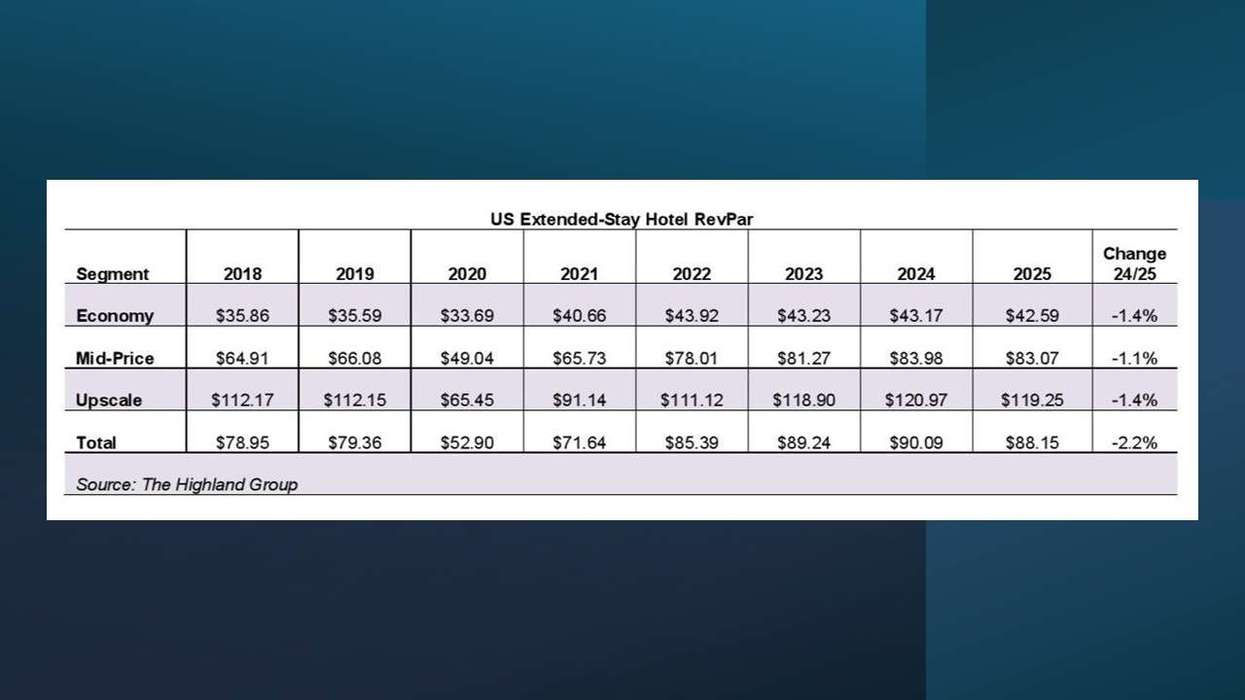U.S. HOTELS CANNOT count on a holiday travel surge this year as a result of the growing surge in COVID-19 cases, according to a survey by the American Hotel and Lodging Association. The survey found that 72 percent of Americans are unlikely to travel for Thanksgiving and 69 percent are unlikely to travel for Christmas.
Business travel, a key market for hotels at this time of year beside holiday travel, also is expected to be down with only 8 percent of survey respondents saying they have taken a business trip since March. Also, 19 percent of respondents who are currently employed, or 8 percent of all adults, expect to travel for business within the next six months.
Of those who are traveling, 62 percent do not plan to stay in a hotel for business, according to the survey of 2,200 adults conducted Nov. 2 to 4.
“This holiday travel season will be an especially difficult time for all Americans, and our industry is no exception,” said Chip Rogers, AHLA president and CEO. “Fewer people will be traveling, and business travel remains nearly non-existent. That’s why it’s so important for Congress to pass a relief bill now. Millions of Americans are out of work, and thousands of small businesses are struggling to keep their doors open. We cannot afford to wait until the next Congress is sworn in for relief. They need help now.”
Other key findings of the survey include:
- 32 percent respondents have taken an overnight vacation or leisure trip since March.
- 21 percent of Americans say they are likely to travel for Thanksgiving, 24 percent are likely to travel for Christmas.
- 24 percent are likely to travel for spring break.
- 44 percent say their next hotel stay for vacation or leisure travel will be a year or more from now or they have no plans to stay in a hotel.
The pandemic has led to drastic decreases in travel that has led to massive layoffs in the industry, with more than half of the country’s hotels reporting they have less than half of their typical, pre-crisis staff working full time currently, according to AHLA. Without a new federal stimulus package, the association said 74 percent of hotels said they would be forced into further layoffs.
“Business and group travel are not expected to reach 2019 peak demand levels again until 2023,” AHLA said. “As a result of the sharp drop in travel demand from COVID-19, state and local tax revenue from hotel operations is estimated to drop by $16.8 billion in 2020.”
Travel agency AAA made a similar forecast for the Thanksgiving holiday weekend last week. The agency forecasts at least a 10 percent drop in travel, the largest one-year decrease since the Great Recession in 2008.





